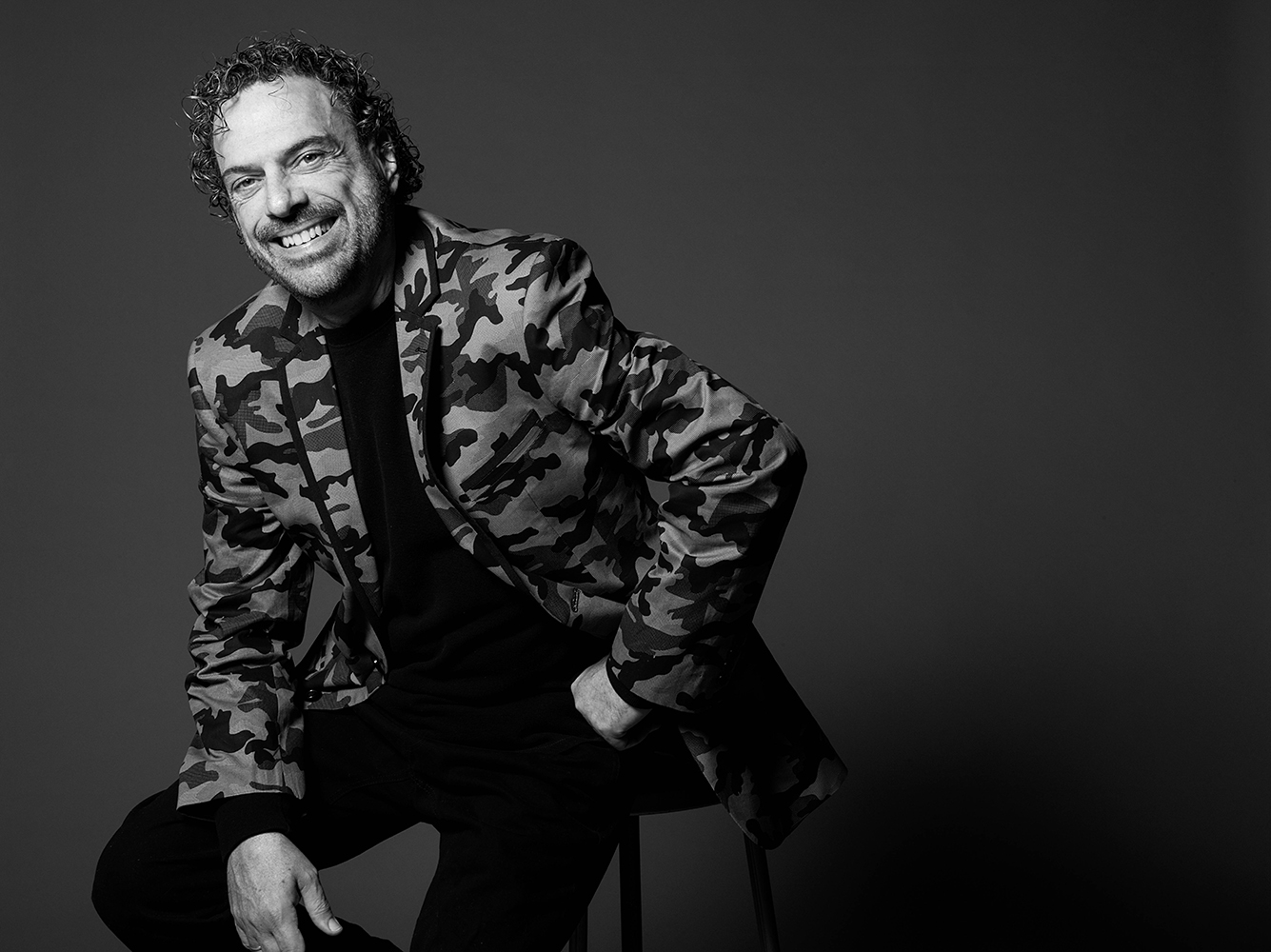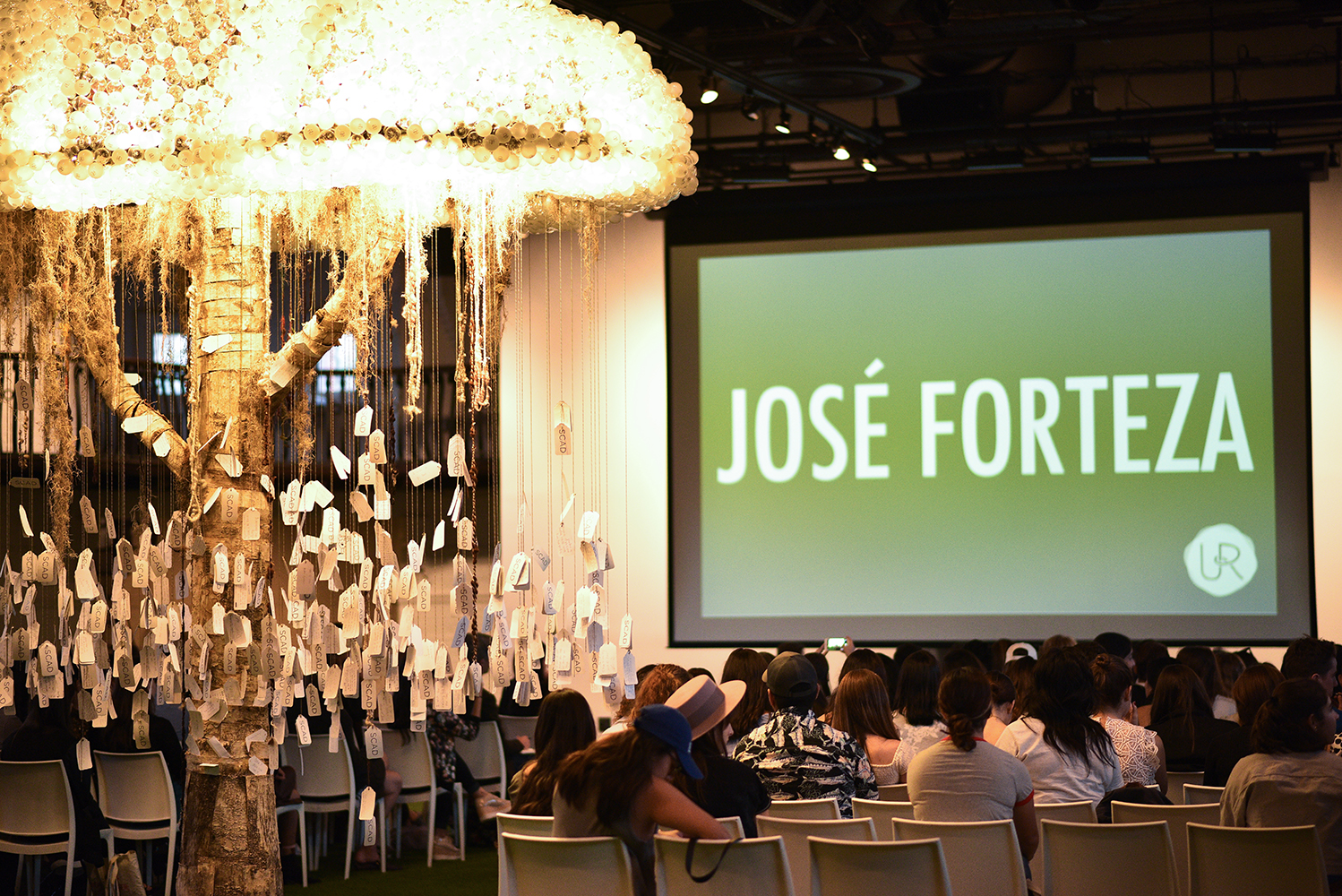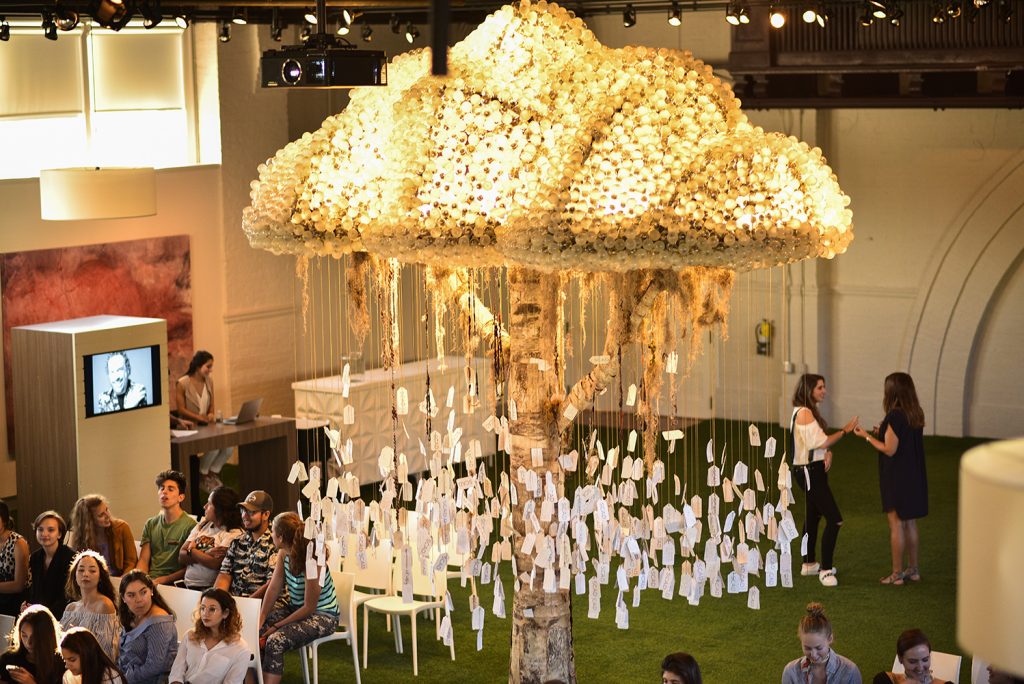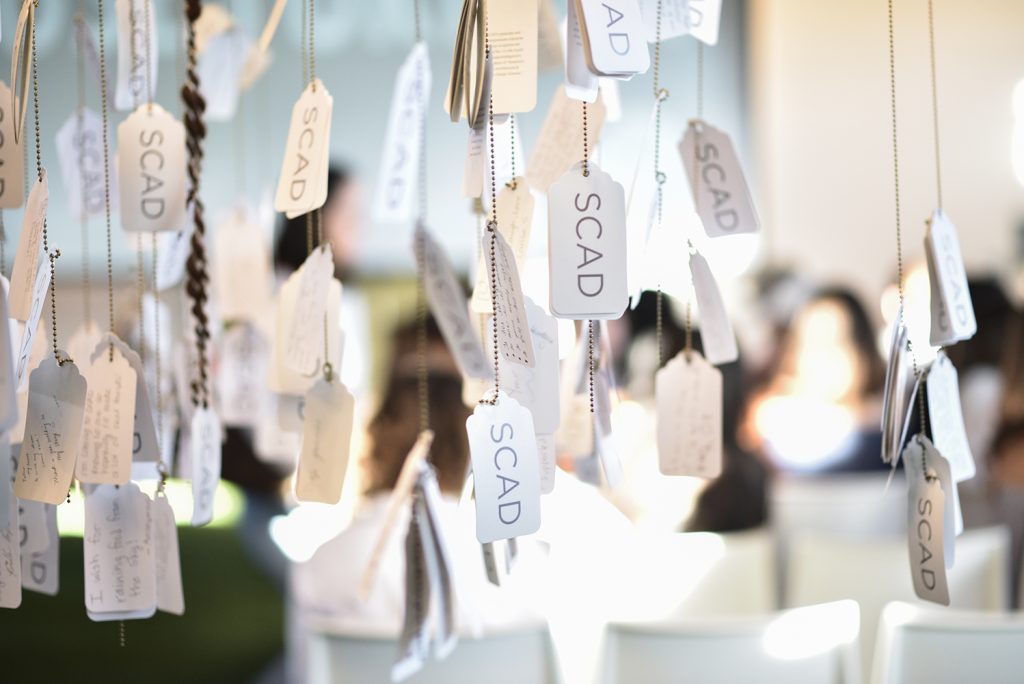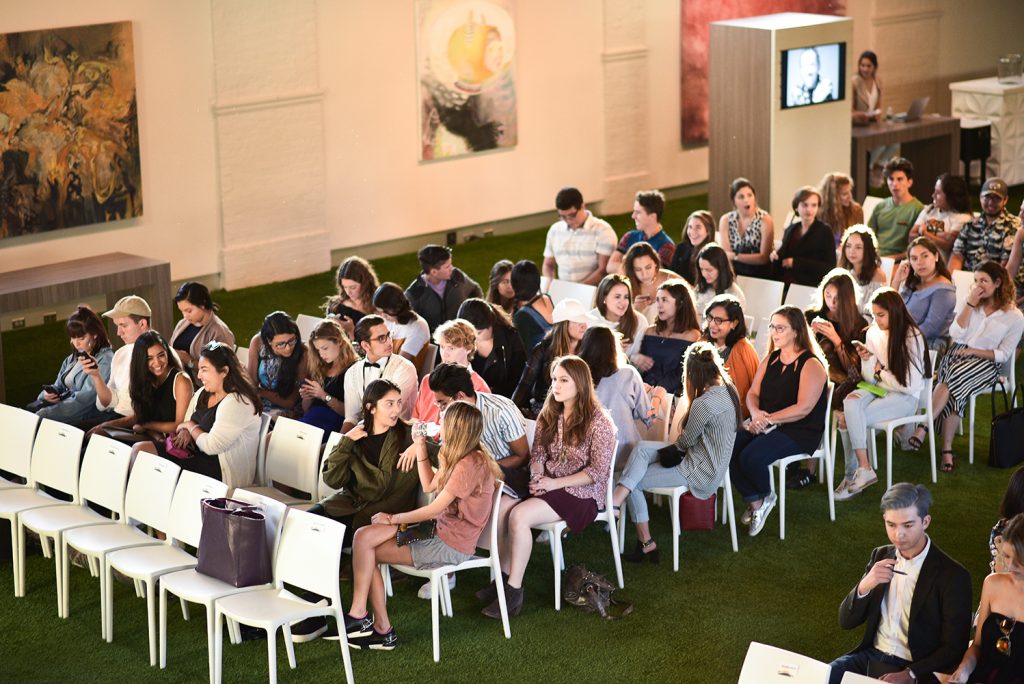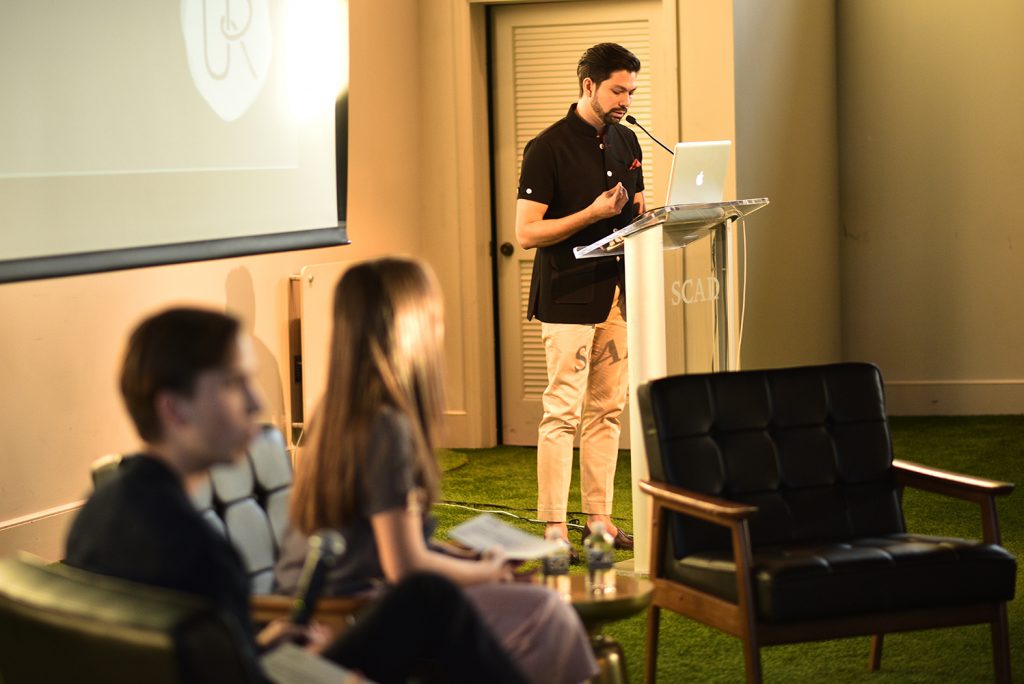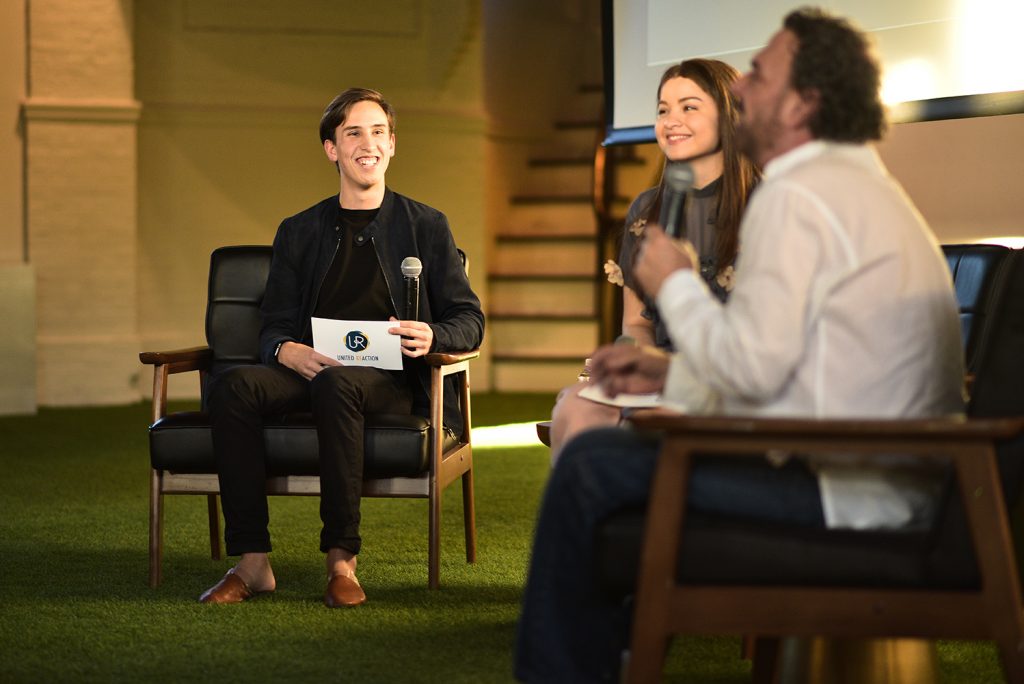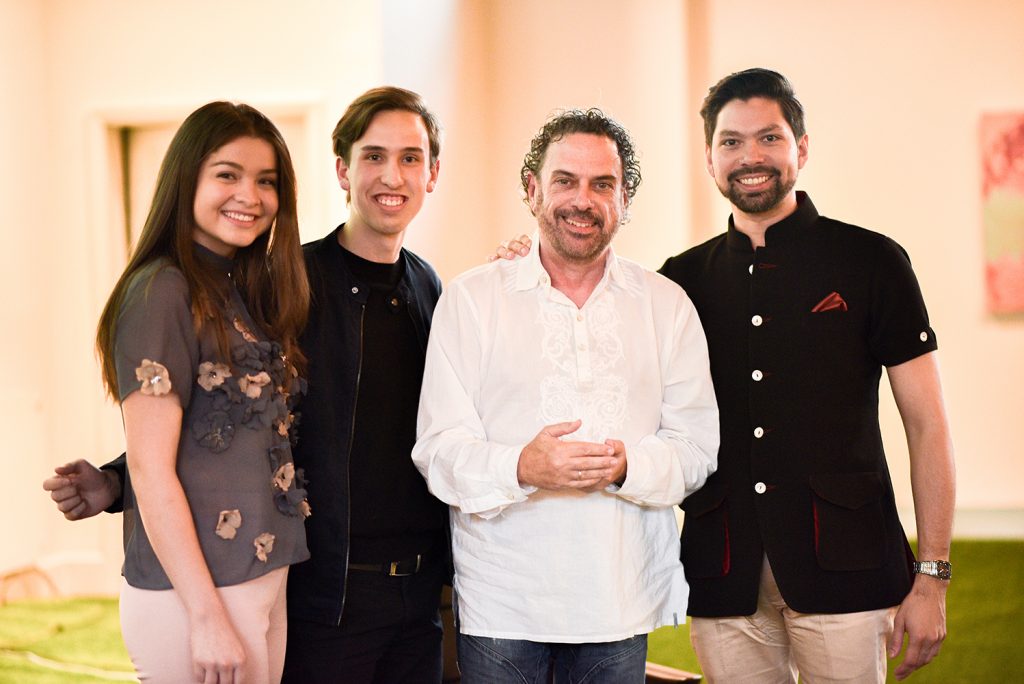A mundane Saturday morning took a turn for the best when we walked onto a set with jazz music playing and José Forteza’s warm personality filling the room. Thanks to the continued efforts of SCAD’s United Reaction, a club that shines light on creative careers in Latin America, The Manor had the pleasure of interviewing Jose Forteza.
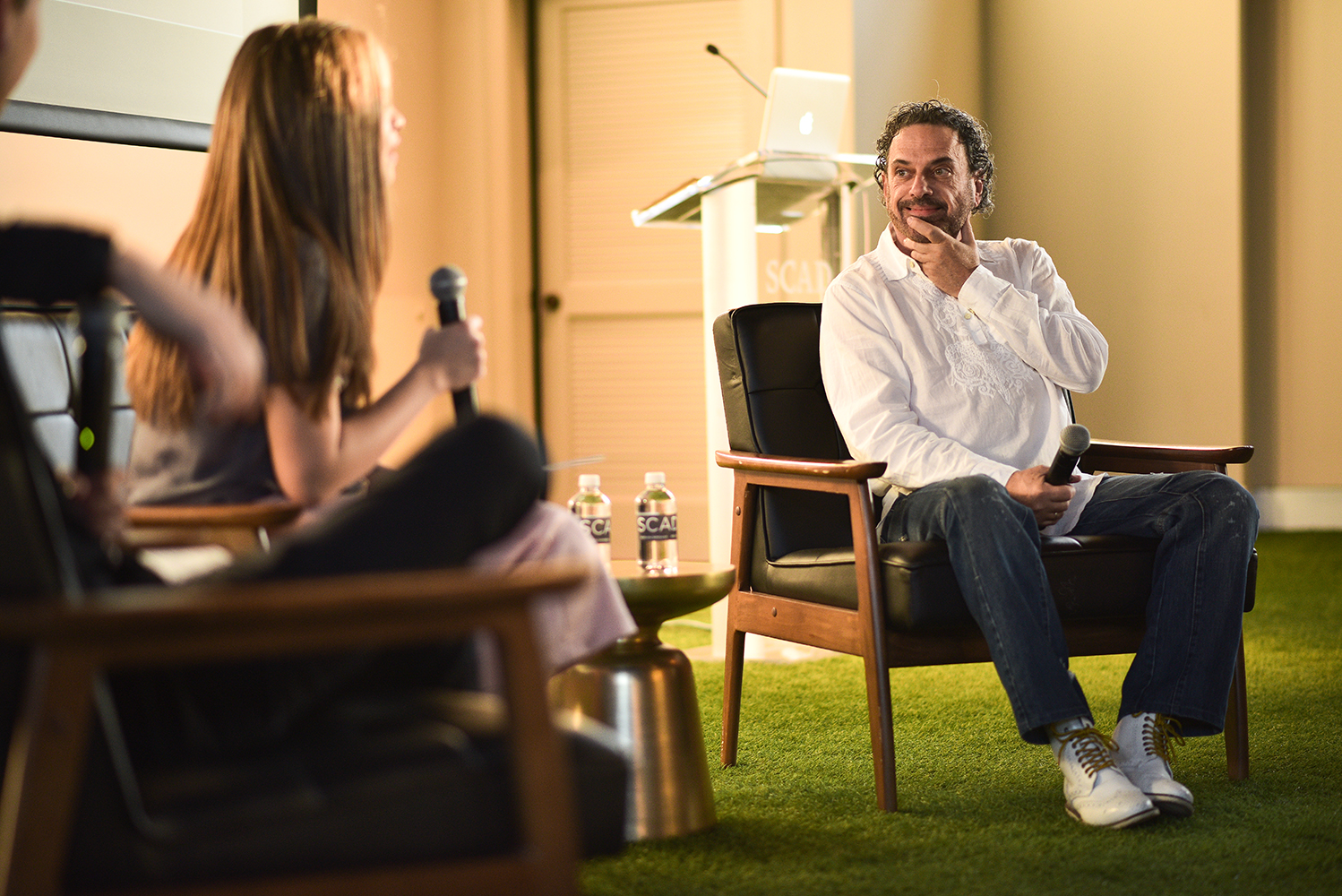
Now the Senior Editor of Vogue Mexico, Forteza started his career as a band manager where he was constantly on the road fine-tuning his senses and communication skills, which led him to where he stands today.
What potential talent do you see emerging in the design community in Latin America right now or within the next few years?
FORTEZA: It’s the best time to answer that question. This whole year, I’ve been at fashion weeks in Central America. I went to Costa Rica, Panama, Nicaragua, Honduras; places you wouldn’t imagine there’s a fashion week. There’s not only fashion week, but there is a strong movement of interesting young designers – and when I say young, I’m not talking about age. The potential is humongous; it’s amazing. I’m talking about the capacity of those creative minds who are doing something fresh and new. Maybe because of the fact that they’ve been in their cocoon, they are very original.
Sometimes, when you go to New York, Paris or Milan, you see great things, amazing things, but more of the same. [When] you go to these areas in Central America, you’re finding original talent.
In terms of perspective and potential, the interesting thing is that now they understand that they’re part of an industry. You have to think of the people. Think of a woman who deserves a piece that is well designed so that she can wear it – for real – to go to work, to school, or to a party with her friends. That’s what’s important, and that’s what I’m noticing in Central America with these designers. They understand, creatively, what’s going with the rest of the world, but they also understand that they’re part of an industry.
What have been your biggest accomplishments over the last year?
FORTEZA: Oh, being alive! That’s great. Every morning when I wake up and breathe and see the sun, that’s my biggest accomplishment.
Vogue is the #1 fashion magazine in Latin America, leading with 61% of the market. What makes Vogue the most influential magazine?
FORTEZA: I think the first thing is tradition. Vogue has been in the industry for more than a century. We are called the Bible of fashion, and I think that we have a very sharp eye on everything that is going on, fashion-wise.
We started off in a little office in Miami, now we have an office in Mexico City, which is the headquarters. We have a double objective. One is to show the world what’s going on in Latin America, bringing the Latin American challenge to the rest of the world through our sister Vogues. The second thing is to bring what’s going on in the rest of the world to Latin America.
Times have changed. At the beginning, we were the only ones. Now, we have the internet and bloggers, which I totally respect. Our role is to take this same thing and develop an analysis of what’s going on and present it in more detail so that everybody can understand it. Fashion is a way of living – that’s our job, and that’s why we’re successful.
What was the biggest obstacle in getting to this point in your career?
FORTEZA: You have good points in your career when you’re very young, but sometimes when you have good points in your career, you lose the floor. At some points in my career, I had a couple of minor achievements that made me think I was a very important person. I thought I had the world in my hands, and the obstacle was to understand, that that is all…I can’t say the word… B whatever [bullshit!]. You can say, okay this is a good moment, I’m lucky, but I need to keep up with the rhythm of life. I hate to say the word humble, because I’m not humble at all, more like – keeping it real.
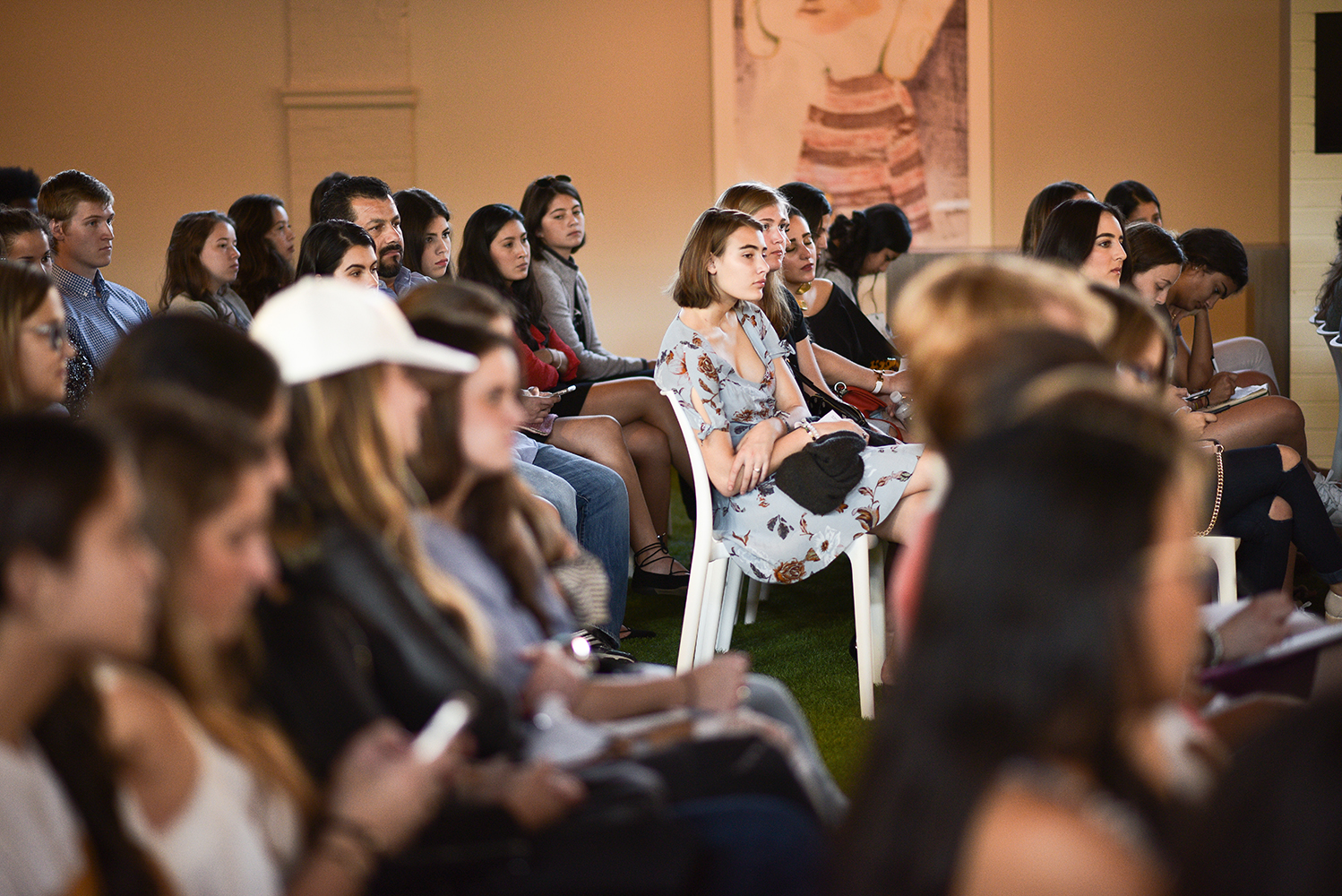 How has your Latin American descent influenced your current work?
How has your Latin American descent influenced your current work?
FORTEZA: Oh totally! I was born in Havana, Cuba, with Spanish descent. I have a sense of rhythm, which is very important. Second, I think that Latin culture is very colorful, very open. We are the biggest show offs you can imagine. There’s a very rich culture; colors, textures, and traditions that no one else has.
What’s your normal workday like in the office?
FORTEZA: I wake up, check my email (lots of emails), and I answer the emails I can. Then I start editing and researching. For example yesterday, I got here, had dinner, went to the place I’m staying. I sat down and edited four stories, wrote two and then I went to sleep. The editors on our team travel a lot, cover a lot of events, but we’re always connected to the office in Mexico City. It’s the non-glamorous part of the job, which I love.
If I’m home with nothing to do, I have two nephews that are like my grandsons – they take good care of me. The best moment in my schedule is when I’m sitting on a long flight or car ride and I can just sit and listen to jazz or watch a good movie – an oldie, probably.
What’s your favorite thing to do outside of the office to get inspired?
FORTEZA: When you’re tired, it’s a sign. Take a few minutes to do whatever you need to do to energize you.
We know you get asked about your position at Vogue more often than not, what’s one question you wished you got asked more?
FORTEZA: Oh gosh, one question? That’s the question I’ve never been asked. What shall we do to spend 20 years in the job? Work, research, and love what you do. That’s it. Work, work, work. If you love your job, you won’t even feel it AND you will have a life. Otherwise you won’t be a happy person. You’ve gotta have a life.
Words by Emily Cole and Ashley Romasko
Photography by United Reaction

